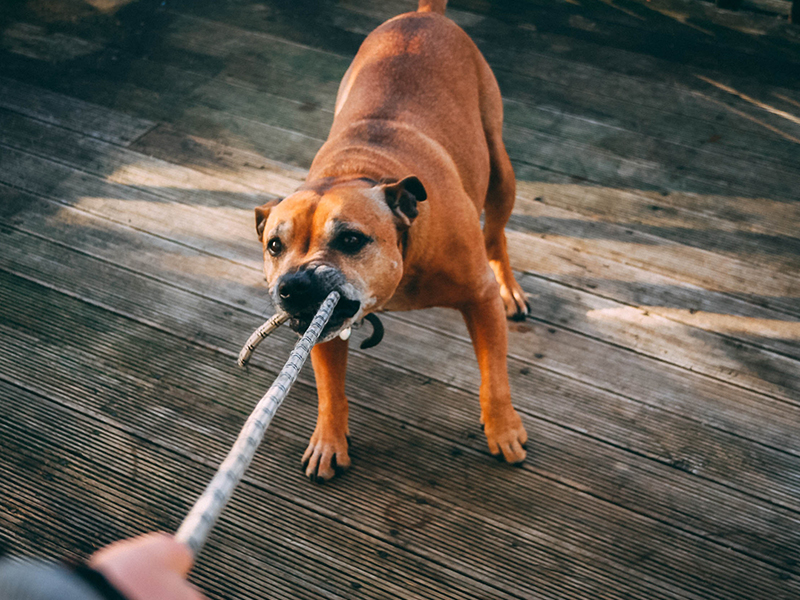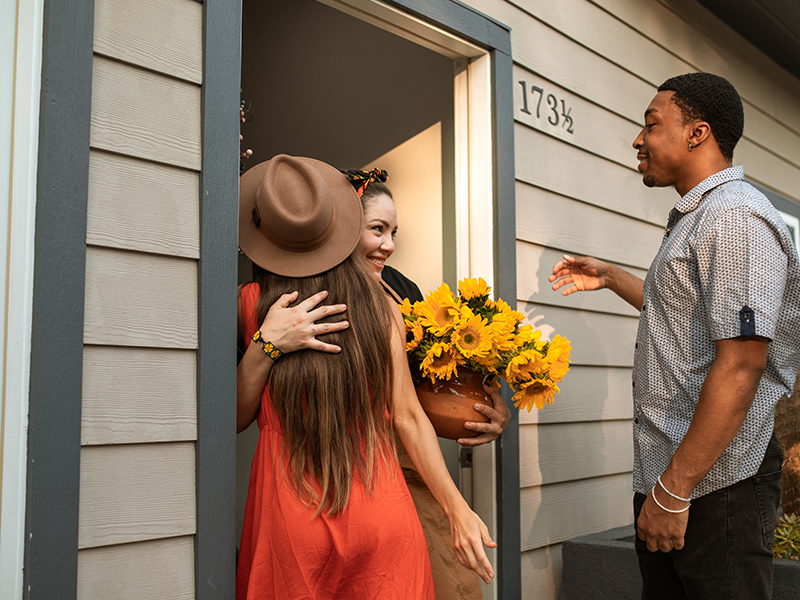How to deal with problematic neighbors

Congratulations! It’s finally closing day. Your dream of living in Ashland, OR is finally coming true. Your real estate agent is talking to you about a couple of things you should remember before your big move when you hear a couple next door arguing. You say it’s not a problem, that might just be a one-off thing. Thankfully, the couple stops arguing.
A couple of minutes later, your other neighbor blasts music so loud that you and your Realtor have to cover your ears inside your new house. And then you realize: you have bad neighbors. But you just signed the paperwork, so how are you going to deal with all of this?
According to a recent survey, the average American moves 5 times throughout their life. That means for each of the five times they move, they have a chance of living next to a bad neighbor. What’s a bad neighbor and how do you spot them? What can you legally do when you have bad neighbors?
This guide can help you spot a bad neighbor and deal with them in a legal way.
WHAT MAKES BAD NEIGHBORS?
Even without a strict definition, most people already have an idea of what a bad neighbor is. Bad neighbors are the people who live next door and do things that drive you crazy. What they do may not necessarily be illegal, but they can bother you no end. Living next to your version of a bad neighbor can make your stay in the neighborhood, condo, or building uncomfortable, if not unbearable. In a worst case scenario, their actions and behavior might even put you and your family at risk.
So, what makes a bad neighbor?
According to a survey conducted by Realtor.com, the worst trait a neighbor can have is being disrespectful of their neighbor’s property. Being noisy and untrustworthy are also bad traits. So are nosiness, messiness, and being unfriendly.
In contrast, the survey says that good neighbors are those who are trustworthy, quiet, friendly, and respectful of others. If you’re looking for neighborhood green flags, look for these traits in your soon-to-be neighbors. Surprisingly though, according to the participants in the survey, you don’t necessarily have to be friends with all your neighbors. You just need to respect them and their space.
The bottom line is that anyone who disturbs the peace and quiet of a neighborhood can be considered a bad neighbor.
TYPES OF PROBLEMATIC NEIGHBORS

Neighbors can be annoying in different ways. Here are some of the most common types of bad neighbors so you’ll know how to spot one as you choose your new neighborhood.
The “rule-makers”
What they do:
These neighbors have a habit of walking around the neighborhood and nitpicking every minute detail in the area. Is your yard overgrown by a couple of inches? Reported to the HOA. Is your car parked the “wrong” way? Reported. They’re also known for their indirect and passive-aggressive ways of letting other people know of their “crimes,” mostly through a strongly worded note slipped under the offender’s front door.
How to spot them:
These “rule makers” typically lack a robust social life and seem to have nothing better to do, so they invest their energy into their draconian behavior. How do you spot them? They’re often the first ones to introduce themselves and tell you all about the rules if you just moved to a new place. They’re also the first person to file a complaint at the smallest inconvenience.
The gossip
How to spot them:
Unfortunately, it usually takes several interactions before you can even pinpoint who the local gossip is. But a common red flag among these types of neighbors is that they tend to divulge too much information about other residents in the area even if unprompted.
How to defend yourself:
Your best defense? Be extra careful. Keep these people at arm’s length and make sure not to disclose anything that you don’t want the whole world to know. Protect your safety and sanity by politely changing the subject or not talking to them at all.
The racket makers
What they do:
Noisy people can be the worst type of neighbors to have because they don’t consider the welfare of the people next door – that’s you! They’re also typically not aware of the time of day – they’re just blasting music or arguing loudly at all hours. With such neighbors, there’s no telling when you can enjoy any kind of peace and quiet.
How to spot them:
Luckily, it’s easy to spot them – just follow the noise. If you’re house hunting in a new area, make sure to listen for shouting matches or loud music next door or in the units above and below you. Another way you can find out if you live in a noisy neighborhood is to head to the backyard. If you can hear the racket next door from your vantage point, then your neighbors are too noisy.
The property line offenders

What they do:
Aside from erecting fences, property line zealots have a habit of raking dead leaves from their trees into your backyard. They might have also cut down some of your shrubbery without your permission. Worst of all, they might even send you the bill for the work they did!
How to spot them:
Although they seem to strictly adhere to property lines, they have no respect for yours. As long as you don’t encroach on their property, they will encroach on yours. It may take time to spot them, but behaviors as outlined above are glaring red flags.
The slob
What they do:
To be clear, there are days when you just forget to take out the trash or put away the toys your kids have abandoned in the front yard when they head indoors. That happens to everyone. But the neighborhood slob is different. Their yard is overgrown, the trash overflows, and the exterior of their house is in dire need of repair. The mess goes beyond aesthetic concerns, it makes an impact on the neighborhood’s real estate value and may give rise to safety issues.
How to spot them:
What you see is what you get. While sights and smells are red flags, some homeowners may be facing serious difficulties in their personal lives. So before you complain or do anything rash, have a quick and friendly chat with them.
The careless pet owner

What they do:
The careless pet owner is pretty common. In every neighborhood, there are homeowners who don’t clean up after their pets or allow their pets to run loose in their yard day and night. There’s also the unchecked barking. Worse, they may own aggressive pets that can frighten or pose a threat to neighborhood children. Have your homeowners association deal with the issue, which may include talking to the pet owner or calling in Animal Control.
How to spot them:
Stop, look, and listen to complaints coming from neighbors or the people in your own household.
The mayor
What they do:
Self-appointed “mayors” are a mixed bag. They’re that one neighbor who’s lived in an area the longest so they can be skeptical of change. Their mindset is: it’s been this way forever, so why fix it if it ain’t broke. On the other hand, they’re effective at mobilizing the neighborhood when faced with a serious threat. They can be the best or worst people you meet in a community, depending on the situation. So hold your judgment and live and let live.
How to spot them:
You’ll know soon enough when the local municipality or neighborhood association proposes broad changes to existing systems. Or when the neighborhood is under threat by criminal activity or an impending natural disaster. Casually chatting with neighbors may also casually reveal the neighborhood “mayor.”
Dangerous neighbors
What they do:
Dangerous neighbors participate and engage in illicit activities or may display openly hostile behavior. They make physical threats when faced with minor inconveniences. There may be many unexplained comings and goings in their house or unit during odd hours. While the latter may not indicate anything dangerous per se, the activity may be a cause for concern, especially if you live alone or with your family.
How to spot them:
See above. Note that you can ask your building administrator or HOA to investigate your concerns based on governing documents and local ordinances.
7 WAYS TO DEAL WITH PROBLEMATIC NEIGHBORS

Knowing the kinds of bad neighbors you might encounter, what can you legally do about them? Fortunately, there are several methods of dealing with them. Here are a few of them:
-
Call ahead and agree on a time to have a polite chat
-
Meet in a public place
-
Call in an expert mediator
-
If you can’t talk, leave them a note or a letter
-
Consult your condo or block association
-
Check local ordinances and zoning laws
-
Consult your lawyer
-
Should you fail, call your local precinct
Most misunderstandings can be solved with a quick and polite chat. Most of the time, the problematic neighbor isn’t aware they’re causing problems in the community. Having a quick chat about your issue can help clear things up immediately.
If you’ve just moved in, you can drop by their place and introduce yourself. Then, take the time to know them well enough to borrow a few tools or lend a hand. Building trust and understanding goes a long way in avoiding problems down the line. It also helps both of you to solve issues in a cordial manner.
For example, invite your neighbor the next time you entertain at home. Or give them your number and ask them to call if your party gets too noisy. The friendly overture will ensure that they don’t call the police first.
If the issue is serious, you can arrange to meet with your neighbor in a public area, such as a sidewalk in front of your house or theirs. The location is for your safety should things get heated.
Remember to remain polite even if you’re being open and direct. Ask for your neighbor’s input. Avoid being passive-aggressive and confrontational as that can cause things to escalate. Stay cool and positive as you discuss possible solutions and compromises.
The goal is to solve the immediate problem by talking things through with your neighbor. This is especially important if both of you live next door. Solving things in a peaceful way avoids more stress and problems for everyone.
Allow each one to document the meeting. Or you can document the meeting and then show it to your neighbor for their buy in. Listen to their feedback and adjust accordingly.
If emotions are already running high and you don’t think you can handle the situation on your own, you can call an expert mediator. They can help you work through the issues without bias and come up with a solution that’s acceptable to everyone.
If you can’t find time to talk to your problematic neighbor or if they try to avoid meeting up with you, don’t give up. Instead, write them a polite note or a short letter explaining the situation, the ordinances that apply, and offer a constructive solution. The tone and content of the note might elicit a positive response from your neighbor and solve the problem.
If your note falls on deaf ears, approach your HOA for help – especially if the issue involves violating HOA regulations. Every local HOA usually has rules that apply to noise, pets, and home-owned businesses, among others. If your neighbor ignores your overtures, the homeowners’ association will flex their legal muscle on your behalf.
You can also look into local ordinances and zoning laws. If you think you have a case, you can bring the petition to Small Claims Court to seek an injunction or damages.

The best thing to do legally about bad neighbors is to try to solve the issue in a peaceful and friendly way. But if you can’t be dissuaded from taking legal action, consult a real estate attorney or your lawyer to find out more about the process of filing a complaint.
If you’ve tried everything to solve the issue – letter, meeting, HOA, and lawyer – but nothing seems to get through, it may be time to involve the authorities, especially when your safety is at risk. Let them know that you’ve tried to solve the problem but that actions and behavior that harass you or suggest illegal activities have continued. Note that you can be called as a witness if things go to court.
WORK WITH THE BEST: ASHLAND HOMES REAL ESTATE

If you’re looking for your dream home in Ashland, OR, Ashland Homes Real Estate can help you reach your real estate investment goals. We help our clients buy and sell homes in the southwest Oregon area, from starter homes and luxury properties to acreages, wine properties, and multi-unit residential properties, we’ve got you covered.
Why should you trust us with finding the perfect property for you? We’ve been in the business for over four decades, delivering quality service to our clients non-stop. Our agents are experts on the local real estate market and have an established connection with the local community. Whether you’re putting your home up for sale or looking for a gorgeous family home, we’ll be there with you every step of the way.
Start your real estate journey with Ashland Homes Real Estate by calling 800.334.7499 or leaving a message here.
